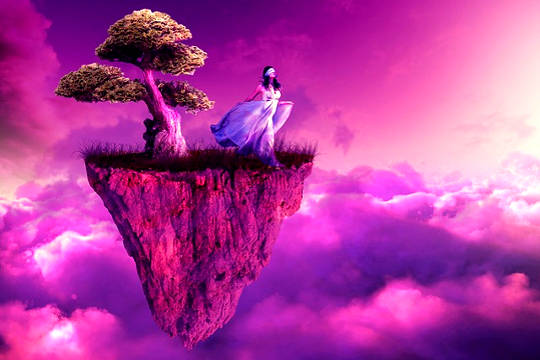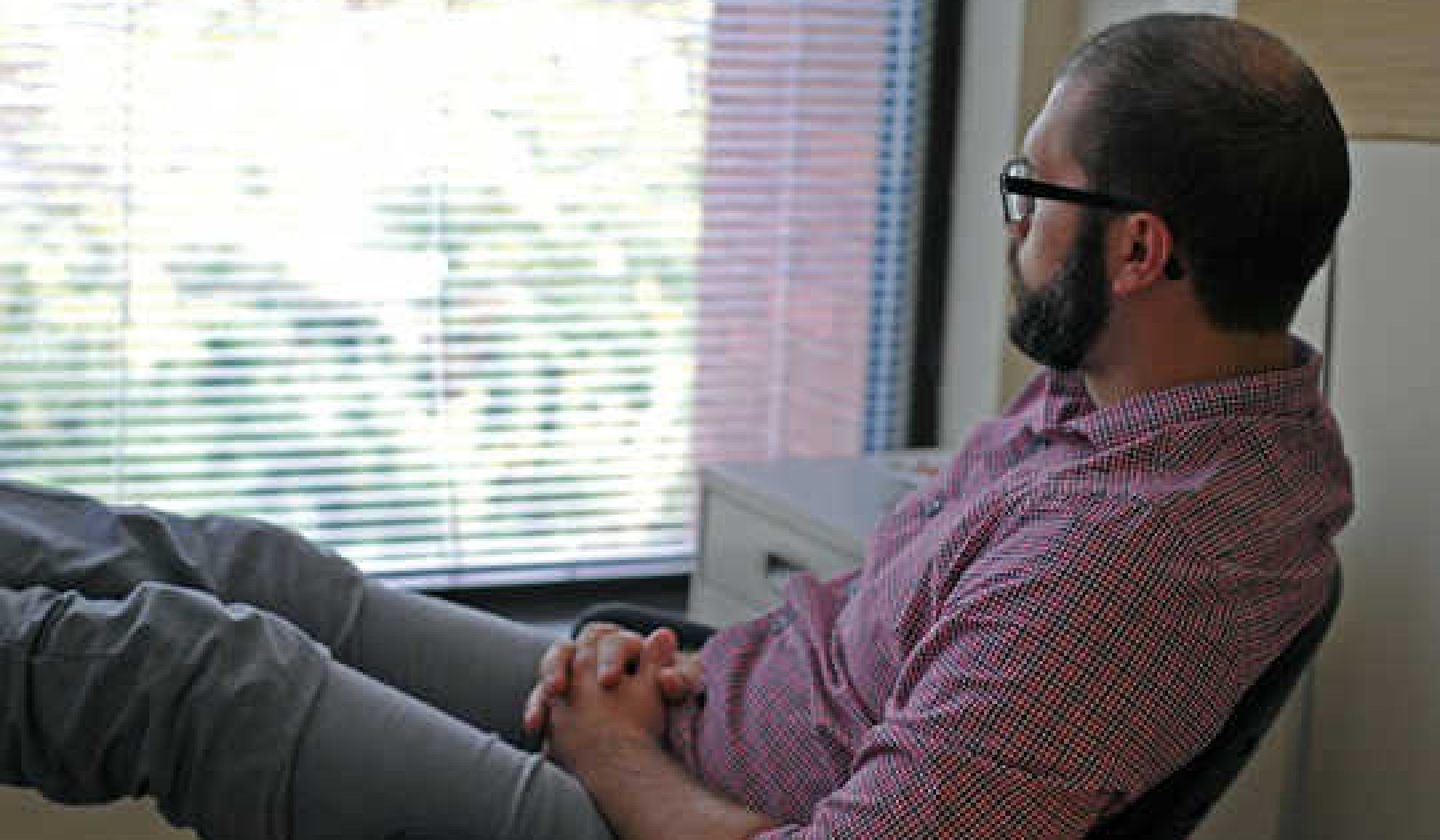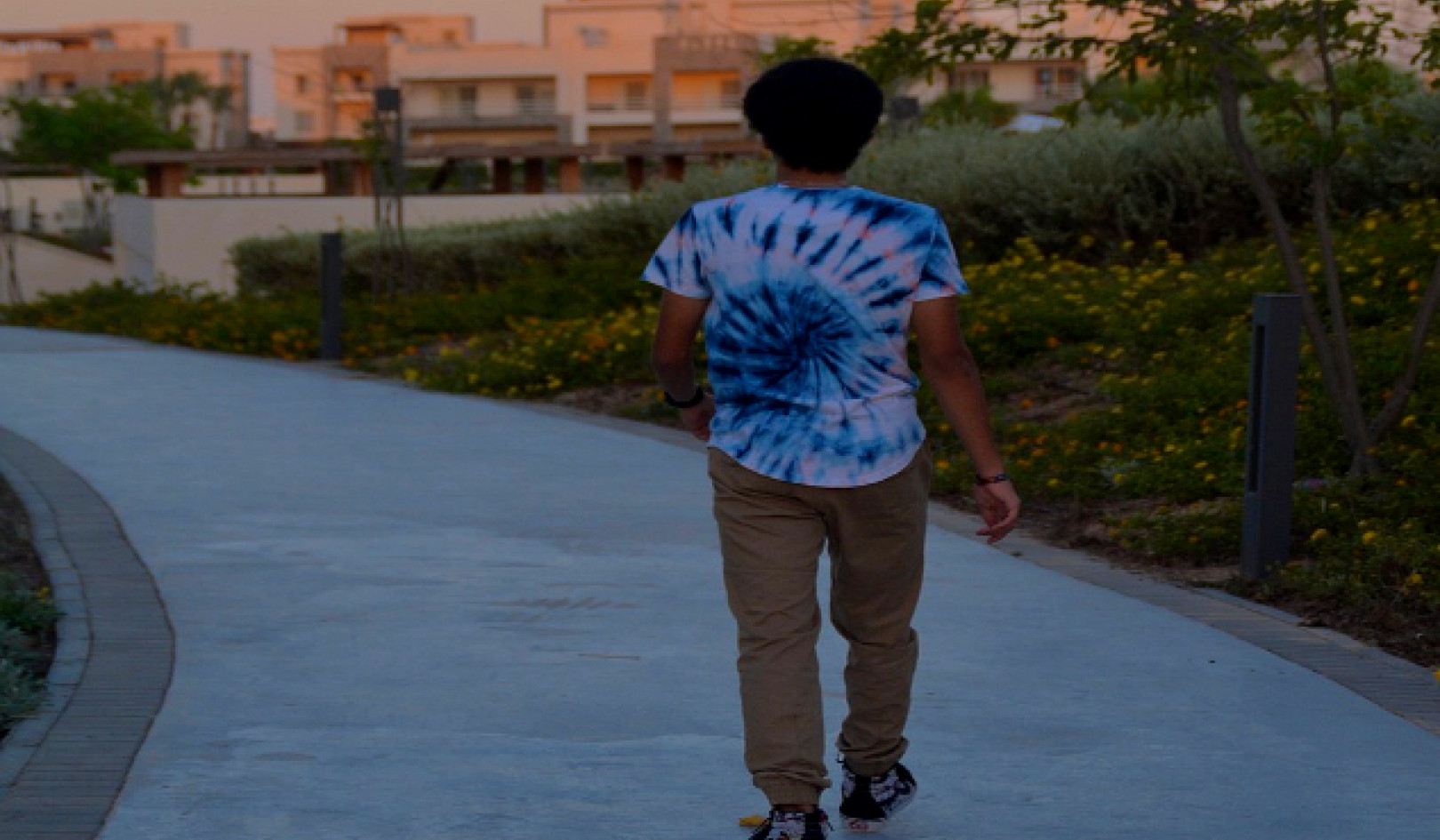
Driven by survival, hassled by the demands of life, we live in a world completely thronged by holding on to our state of existence, our livelihood, our jobs. People throughout this century, and for at least the last few thousand years, have been trying to solve our problems right and left. Throughout history, in fact, great prophets, teachers, masters, gurus, yogis, saints of all kinds have appeared and tried to solve the problems of life.
There is no outside help to save you from the terror and the horror of life. The best doctor of the doctors and the best medicine of the medicines and the best technology of the technologies cannot save you from your life. The best consultants, the best bank loans, and the best insurance policies cannot save you. Eventually, you must realize that you have to do something rather than depending on technology, financial help, your smartness, or good thinking of any kind -- none of which will save you.
We Cannot Avoid Our Lives -- We Have To Face Our Lives
We cannot avoid our lives -- we have to face our lives. That may seem like the black truth, but it is the real truth. Often, in the Buddhist tradition, it is called the vajra truth, the diamond truth, the truth you cannot avoid or destroy. We cannot avoid our lives at all. We have to face our lives, young or old, rich or poor. Whatever happens, we cannot save ourselves from our lives at all. We have to face the eventual truth -- not even the eventual truth but the real truth of our lives. We are here; therefore, we have to learn how to go forward with our lives.
From the very day of your birth, you have never really looked at yourself, your life, and your experiences in life. You have never really felt that you could create a good, decent world. Of course, you may have tried all sorts of things. You may have marched in the street in the name of the happiness of humanity, complained about the existing political system, written up new ideas and manifestos to prevent this and that -- that pain, this pain, this confusion, that confusion. You may have been somewhat heroic, and you could say that you've tried your best. Nonetheless, have you found any real peace or rest? A real, dignified world has not been created.
Be Brave Enough Not To Give In: Step Out of the Cocoon
The point of the Shambhala training is to get out of the cocoon, which is the shyness and aggression in which we have wrapped ourselves. When we have more aggression, we feel more fortified. We feel good, because we have more to talk about. We feel that we are the greatest author of the complaint. We write poetry about it. We express ourselves through it.
Instead of constantly complaining, can't we do something positive to help this world? The more we complain, the more concrete slabs will be put on the earth. The less we complain, the more possibilities there will be of tilling the land and sowing seeds. We should feel that we can do something positive for the world instead of covering it with our aggression and complaints.
The approach of the Shambhala training is to do something very basic, very definite, and to begin at the beginning. In the Shambhala tradition, we talk about being a warrior. I would like to make it clear that a warrior, in this case, is not someone who wages war. A Shambhala warrior is someone who is brave enough not to give in to the aggression and contradictions that exist in society. A warrior, or pawo in Tibetan, is a brave person, a genuine person who is able to step out of the cocoon -- that very comfortable cocoon that he or she is trying to sleep in.
Fighting With the Cocoon
If you are in your cocoon, occasionally you shout your complaints, such as: "Leave me alone!" "Bug off." "I want to be who I am." Your cocoon is fabricated out of tremendous aggression, which comes from fighting against your environment, your parental upbringing, your educational upbringing, your upbringing of all kinds.
You don't really have to fight with your cocoon. You can raise your head and just take a little peek out of the cocoon. Sometimes, when you first peek your head out, you find the air a bit too fresh and cold. But still, it is good. It is the best fresh air of spring or autumn or, for that matter, the best fresh air of winter or summer.
So when you stick your neck out of the cocoon for the first time, you like it in spite of the discomfort of the environment. You find that it's delightful. Then, having peeked out, you become brave enough to climb out of the cocoon. You sit on your cocoon and look around at your world. You stretch your arms, and you begin to develop your head and shoulders. The environment is friendly. It is called "planet earth". Or it is called "Boston" or "New York City". It is your world.
Your neck and your hips are not all that stiff, so you can turn and look around. The environment is not as bad as you thought. Still sitting on the cocoon, you raise yourself up a little further. Then you kneel, and finally you stand up on your cocoon. As you look around, you begin to realize that the cocoon is no longer useful. You don't have to buy the advertisers' logic that, if you don't have insulation in your house, you're going to die. You don't really need the insulation of your cocoon. It's just a little cast that's been put on you by your own collective imaginary paranoia and confusion, which didn't want to relate with the world outside.
Then, you extend one leg, rather tentatively, to touch the ground around the cocoon. Traditionally, the right leg goes first. You wonder where your foot is going to land. You've never touched the soles of your feet before on the soil of this planet earth. When you first touch the earth, you find it's very rough. It's made out of earth, dirt. But soon you discover the intelligence that will allow you to walk on the earth, and you begin to think the process might be workable. You realize that you inherited this family heirloom, called "planet earth", a long time ago.
You sigh with relief, maybe a medium sigh, extend your left foot, and touch the ground on the other side of the cocoon. The second time you touch the ground, to your surprise you find that the earth is kind and gentle and much less rough. You begin to feel gentleness and affection and softness. You feel that you might even fall in love on your planet earth. You can fall in love. You feel real passion, which is very positive.
Leaving the Old Beloved Cocoon Behind
At that point, you decide to leave your old beloved cocoon behind and to stand up without touching the cocoon at all. So you stand on your two feet, and you take a walk outside of the cocoon. Each step is rough and soft, rough and soft: rough because the exploration is still a challenge and soft because you don't find anything trying to kill you or eat you up at all.
You don't have to defend yourself or fight any unexpected attackers or wild beasts. The world around you is so fine and beautiful that you know that you can raise yourself up as a warrior, a powerful person. You begin to feel that the world is absolutely workable, not even merely workable, but wonderful. To your surprise, you find that lots of others around you are also leaving their cocoons. You find hosts of ex-cocooners all over the place.
As ex-cocooners, we feel that we can be dignified and wonderful people. We do not have to reject anything at all. As we step out of our cocoons, we find goodness and gratefulness taking place in us all the time. As we stand on the earth, we find that the world is not particularly depressed. On the other hand, there is need for tremendous hard work. As we stand up and walk around, having finally got out of our own cocoons, we see that there are hundreds of thousands of others who are still half breathing in their cocoons.
As an ex-cocooner, you feel it is wonderful that people of the past have gotten out of their cocoons. All the warriors of the past had to leave their cocoons. You wish you could let the cocooners know that. You would like to tell them that they are not alone. There are hundreds of thousands of others who have made this journey.
Becoming a Real Person Who Can Help Others
The Shambhala training is based on developing gentleness and genuineness so that we can help ourselves and develop tenderness in our hearts. We no longer wrap ourselves in the sleeping bag of our cocoon. We feel responsible for ourselves, and we feel good taking responsibility. We also feel grateful that, as human beings, we can actually work for others. It is about time that we did something to help the world. It is the right time, the right moment, for this training to be introduced.
The fixation of ego is manifested in the words I am. Then there is the conclusion: " I am . . . happy" or "I am . . . sad." There is the first thought (I) and the second thought (am), and finally the third thought is the conclusion. "I am happy," "I am sad," "I feel miserable," "I feel good" -- whatever the thought may be. The Shambhala idea of responsibility is to drop am. Just say, " I happy," "I sad." I know there's a bit of a linguistic problem here, but I hope that you can understand what I'm saying. The point is to be responsible to others, without self-confirmation.
To put it slightly differently, suppose your name is Sandy. There is "Sandy", and there is the "world." You don't need a verb between them as confirmation. Just be kind to others. Sandy should be genuine. When she is the real, genuine Sandy, she can help others a lot. She may not have any training in first aid, but Sandy can put a Band-Aid on someone's finger. Sandy is no longer afraid to help, and she is very kind and on the spot.
When you begin to help others, you have raised your head and shoulders, and you're stepping out of your cocoon. The point is to become a real person who can help others.
Being in the cocoon is almost like being a child in the womb, a child who doesn't particularly want to come out. Even after you're born, you aren't happy about being toilet-trained. You would prefer to stay in your nappies, your diapers. You like to have something wrapped around your bottom all the time. But eventually, your diapers are taken away. You have no choice. You have been born, and you've been toilet-trained; you can't stay forever in your diapers. In fact, you might feel quite free, no longer having a diaper wrapped around your bum. You can move around quite freely. You might eventually feel quite good about being free from the tyranny that parenthood and home life impose.
Getting Wrapped Up In All Sorts of Things
Still, we don't really want to develop discipline. So we begin to create this little thingy, this little cocoon. We get wrapped up in all sorts of things. When we're in the cocoon, we don't want to sit upright and eat with good table manners. We don't really want to dress elegantly, and we don't want to conform to any discipline that requires even three minutes of silence. That's partly because of being raised in North America, where everything is built for children to entertain themselves. Entertainment is even the basis for education.
If you can raise your own children outside of the cocoon, you will raise lots of bodhisattva children, children who are real and face facts and are actually able to relate with reality properly. I have done that myself with my own children, and it seems to have worked out.
As decent human beings, we face the facts of reality. Whether we are in the middle of a snowstorm or a rainstorm, whether there is family chaos, whatever problems there may be, we are willing to work them out. Looking into those situations is no longer regarded as a hassle, but it is regarded as our duty.
Although helping others has been preached quite a lot, we don't really believe we can do it. The traditional American expression, as I've heard it, is that we don't want to get our fingers dirty. That, in a nutshell, is why we want to stay in the cocoon: we don't want to get our fingers dirty. But we must do something about this world, so that the world can develop into a non-aggressive society where people can wake themselves up. Helping others is one of the biggest challenges.
Becoming Genuine Within Yourself
I appreciate your inquisitiveness, your sense of humor, and your relaxation. Please try to elegantize yourselves and step out of the cocoon. The basic point is to become very genuine within yourselves. This means being free from the plastic world, if such a thing is possible. Also, please don't hurt others. If you can't do that, at least treat yourself better and don't punish yourself by sleeping in your cocoon.
Finally, please try to work with people and be helpful to them. A fantastically large number of people need help. Please try to help them, for goodness sake, for heaven and earth. Don't just collect Oriental wisdoms one after the other. Don't just sit on an empty zafu, an empty meditation cushion. But go out and try to help others, if you can. That is the main point.
We have to do something. We've got to do something. As we read in the newspapers and see on television, the world is deteriorating, one thing after the other, every hour, every minute, and nobody is helping very much. Your help doesn't have to be a big deal. To begin with, just work with your friends and work with yourself at the same time. It is about time that we became responsible for this world. It will pay for itself.
Reprinted with permission of the publisher,
Shambhala Publications Inc., Boston, MA, USA.
www.shambhala.com. (©1999 by Diana Judith Mukpo.)
Article Source
Great Eastern Sun: The Wisdom of Shambhala
by Chogyam Trungpa.
 An inspiring and practical guide to enlightened living based on the Shambhala journey of warriorship, a secular path taught internationally through the Shambhala Training program. Great Eastern Sun — which is accessible to meditators and nonmeditators alike — centers on the question, "Since we're here, how are we going to live from now on?"
An inspiring and practical guide to enlightened living based on the Shambhala journey of warriorship, a secular path taught internationally through the Shambhala Training program. Great Eastern Sun — which is accessible to meditators and nonmeditators alike — centers on the question, "Since we're here, how are we going to live from now on?"
Info/Order this paperback book. Also available as a Kindle edition.
About The Author
CHOGYAM TRUNGPA, meditation master, scholar, and artist, founded the Naropa Institute in Boulder, Colorado; Shambhala Training; and Shambhala International, an association of meditation centers. His other books include Cutting Through Spiritual Materialism, The Myth of Freedom and the Way of Meditation, and Meditation in Action. For more information about the author and Shambhala meditation centers, visit http://www.shambhala.org.
Related Books
at InnerSelf Market and Amazon
























